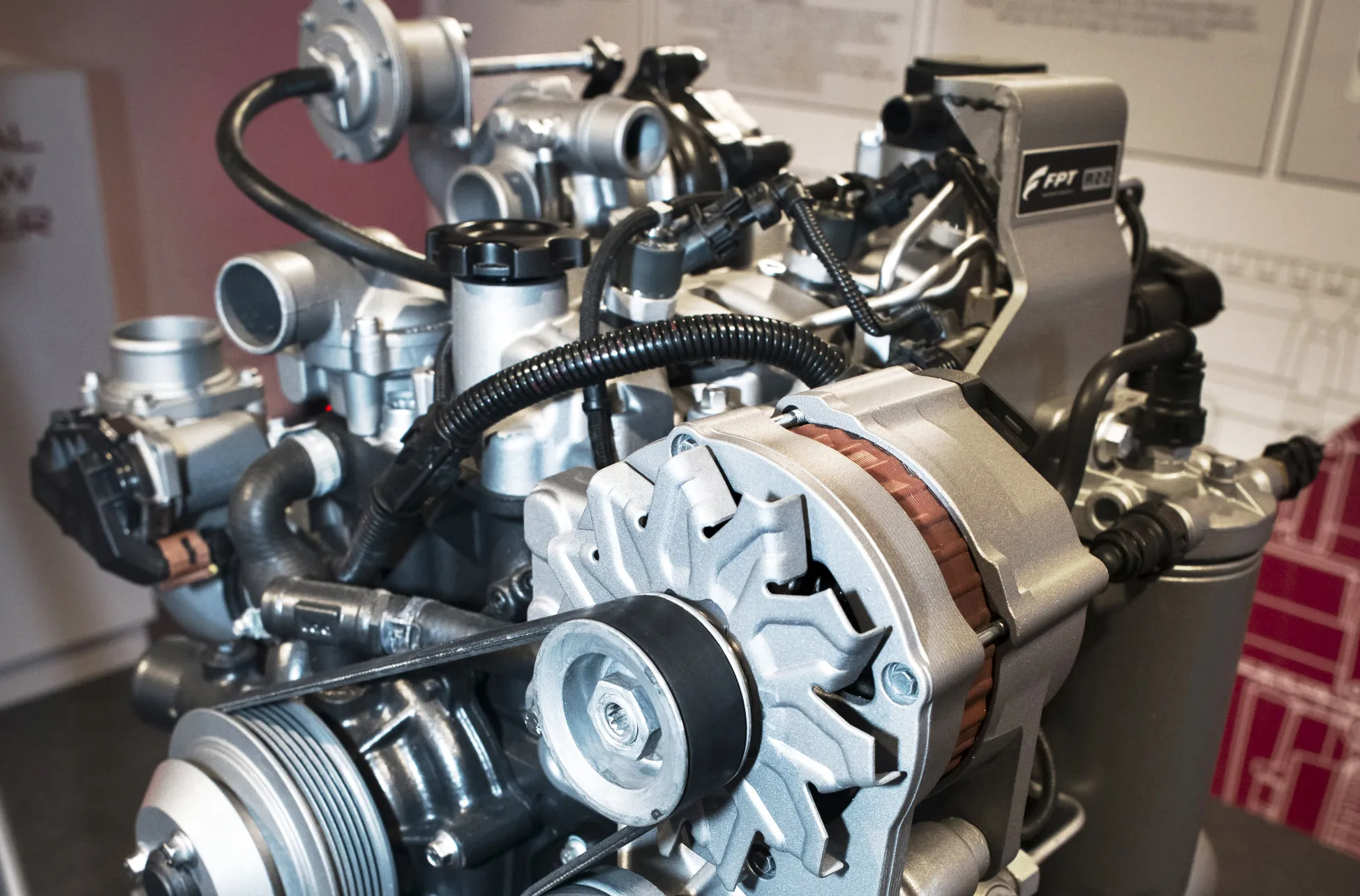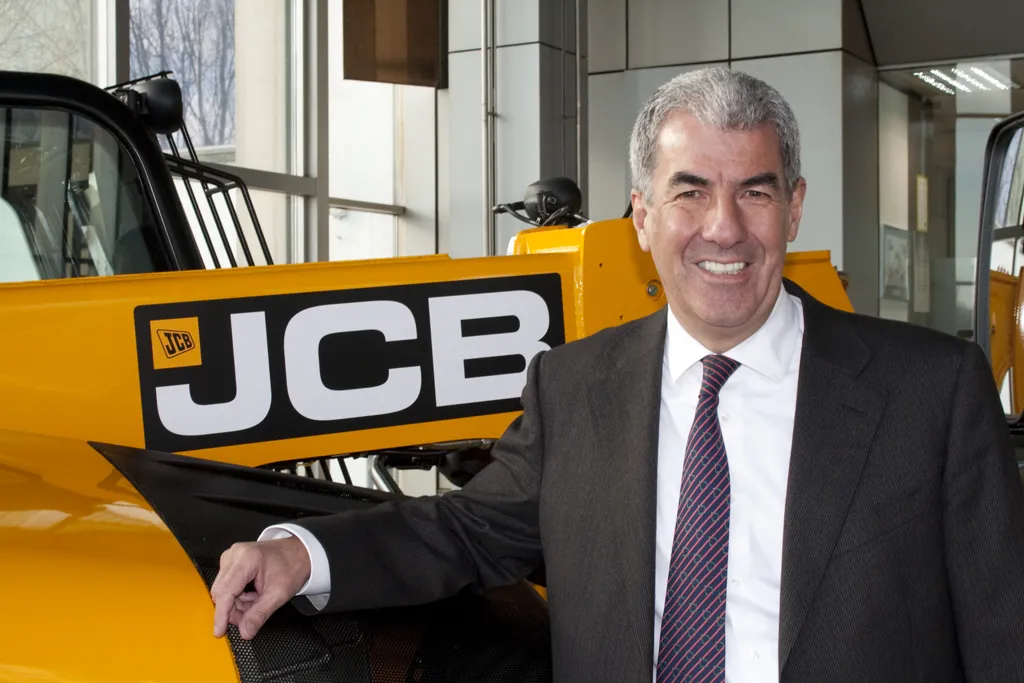JCB has won one of the biggest single orders in its history after securing a deal for 900 machines worth more than €61 million (£53 million) from leading UK plant hirer Fork Rent. The deal for Loadall telescopic handlers cements Ipswich, eastern England-based Fork Rent’s position as the UK’s biggest hirer of the product and with the most modern fleet of this type of machine. The machines are manufactured at JCB's World HQ at Rocester, Staffordshire, central England, and all are to be delivered before the en
December 4, 2013
Read time: 3 mins

JCB has won one of the biggest single orders in its history after securing a Deal for 900 machines worth more than €61 million (£53 million) from leading UK plant hirer Fork Rent.
The Deal for Loadall telescopic handlers cements Ipswich, eastern England-based Fork Rent’s position as the UK’s biggest hirer of the product and with the most modern fleet of this type of machine. The machines are manufactured at255 JCB's World HQ at Rocester, Staffordshire, central England, and all are to be delivered before the end of 2013.
Fork Rent chairman Guy Nicholls said, “Fork Rent and JCB have a great working relationship that spans over 25 years and that enables us to provide our customers with the latest technology and most highly specified machines. This latest investment in new plant delivers on our commitment to offer customers the highest level of service back up in our industry, reliability and peace of mind.”
The Deal will also mean that Fork Rent becomes the first major plant hire company to buy the new JCB 540-200 Loadall, Europe’s highest-reach rigid frame telescopic handler, capable of reaching a height of 20m. Fork Rent said it was adding the 540-200 model to its fleet as part of its commitment to offer customers the most innovative and productive equipment available in the market. Many of these machines are fitted with JCB’s new and unique Ecomax Tier 4 Interim/Stage IIIB engines manufactured at JCB’s engine factory in Foston, Derbyshire.
Nicholls added, “Fork Rent strives to be at the cutting edge of developments in the materials handling industry. As the first company to invest in JCB 540-200s, we can rightly claim to be reaching new heights in our industry with these machines. With fuel-efficient JCB Ecomax engines under the bonnet, customers can also look forward to lower fuel costs as well as exceptional reach. We are also proud to have bought more JCB telehandlers than any other UK company.”
The JCB Ecomax engine meets Tier 4 Interim / Stage IIIB/ emissions standards without using costly diesel particulate filters (DPFs) or exhaust after-treatment fluids, such as AdBlue. The benefits for customers include better visibility from the cab, lower servicing costs and improved day-to-day running costs, with Ecomax-powered JCB Loadalls using 7% less fuel compared with outgoing models.
JCB’s UK & Ireland Sales Director Dan Thompstone said: “Fork Rent’s reputation for investing in modern and up-to-date machines is well known across the industry. JCB’s reputation for innovation in construction equipment is equally well-known.
"So we’re delighted that Fork Rent is investing in machines that will deliver meaningful benefits to their customers, with fuel-efficient JCB Ecomax engines for lower running costs and 540-200 models offering much higher reach.”
With a lift capacity of four tonnes, the new JCB 540-200 – which has a lift height of three metres greater than its nearest JCB rival – was designed with the customer firmly in mind.
The Deal for Loadall telescopic handlers cements Ipswich, eastern England-based Fork Rent’s position as the UK’s biggest hirer of the product and with the most modern fleet of this type of machine. The machines are manufactured at
Fork Rent chairman Guy Nicholls said, “Fork Rent and JCB have a great working relationship that spans over 25 years and that enables us to provide our customers with the latest technology and most highly specified machines. This latest investment in new plant delivers on our commitment to offer customers the highest level of service back up in our industry, reliability and peace of mind.”
The Deal will also mean that Fork Rent becomes the first major plant hire company to buy the new JCB 540-200 Loadall, Europe’s highest-reach rigid frame telescopic handler, capable of reaching a height of 20m. Fork Rent said it was adding the 540-200 model to its fleet as part of its commitment to offer customers the most innovative and productive equipment available in the market. Many of these machines are fitted with JCB’s new and unique Ecomax Tier 4 Interim/Stage IIIB engines manufactured at JCB’s engine factory in Foston, Derbyshire.
Nicholls added, “Fork Rent strives to be at the cutting edge of developments in the materials handling industry. As the first company to invest in JCB 540-200s, we can rightly claim to be reaching new heights in our industry with these machines. With fuel-efficient JCB Ecomax engines under the bonnet, customers can also look forward to lower fuel costs as well as exceptional reach. We are also proud to have bought more JCB telehandlers than any other UK company.”
The JCB Ecomax engine meets Tier 4 Interim / Stage IIIB/ emissions standards without using costly diesel particulate filters (DPFs) or exhaust after-treatment fluids, such as AdBlue. The benefits for customers include better visibility from the cab, lower servicing costs and improved day-to-day running costs, with Ecomax-powered JCB Loadalls using 7% less fuel compared with outgoing models.
JCB’s UK & Ireland Sales Director Dan Thompstone said: “Fork Rent’s reputation for investing in modern and up-to-date machines is well known across the industry. JCB’s reputation for innovation in construction equipment is equally well-known.
"So we’re delighted that Fork Rent is investing in machines that will deliver meaningful benefits to their customers, with fuel-efficient JCB Ecomax engines for lower running costs and 540-200 models offering much higher reach.”
With a lift capacity of four tonnes, the new JCB 540-200 – which has a lift height of three metres greater than its nearest JCB rival – was designed with the customer firmly in mind.








